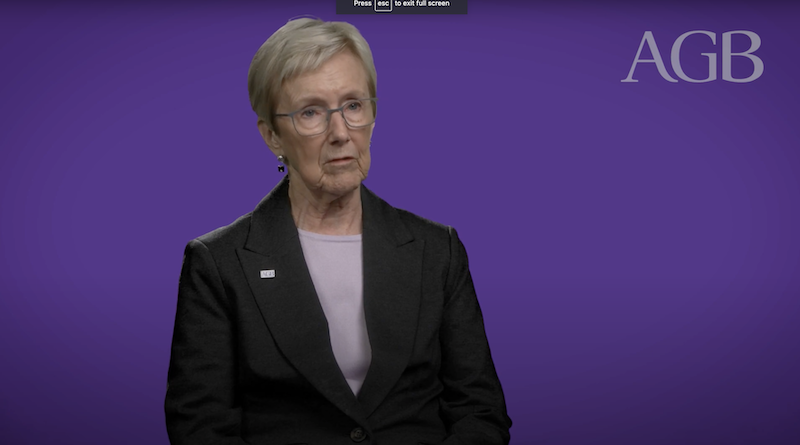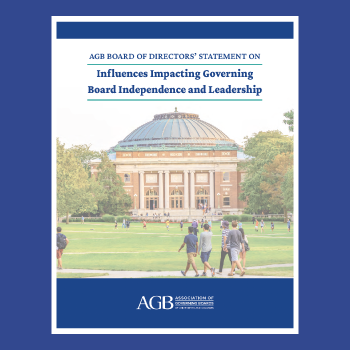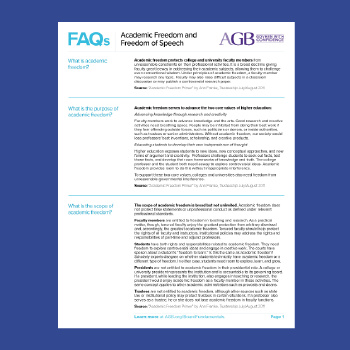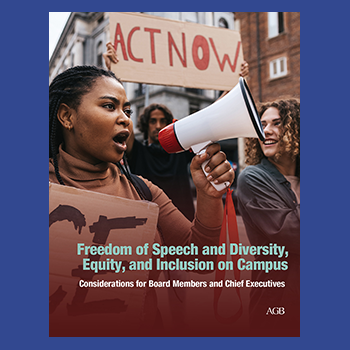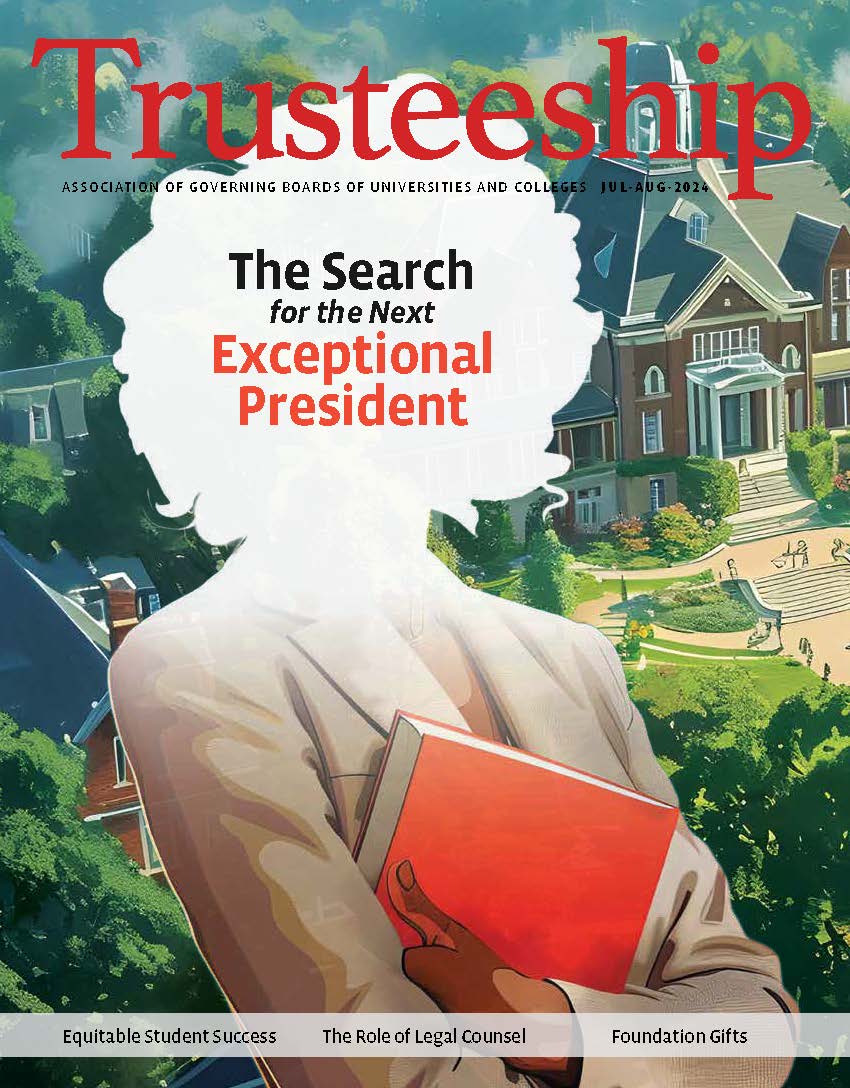Why this is important.
Academic freedom and freedom of speech are core values all higher education governing boards must protect. The First Amendment of the United States Constitution ensures free expression at public institutions while private institutions protect their stakeholders’ rights through commitments to academic freedom.
As centers of learning and civil discourse, colleges and universities provide their students and faculty with spaces to freely articulate their ideas without fear of retaliation or censorship. Yet the rights to both academic freedom and freedom of speech may be subject to restrictions on campus if their expression threatens the safety of campus stakeholders or violates institutional values of inclusion and civility.
Governing boards must spearhead the difficult task of protecting individual freedoms but never at the expense of preserving order, morality, and safety on campuses. AGB empowers our members to partner with faculty and protect these freedoms through robust campus policies, accreditation standards, and adherence to national policy recommendations.
Ellen Chaffee, PhD, AGB interim president and CEO, discusses how putting board independence at risk threatens the learning experience and outcomes for students.
Questions for boards.
Click below to reveal key questions for your board to consider:
Board Processes
Consequential Questions:
- When does our board review our institution’s policies on freedom of speech? Are these policies reviewed as part of the orientation of new board members?
- Does our governing board have a clear decision-making process in place related to issues of academic freedom and freedom of speech?
Source:
Freedom of Speech on Campus: Guidelines for Governing Boards and Institutional Leaders, AGB 2017
Board Engagement
Consequential Questions:
- Does our governing board understand and recognize the alignment between academic freedom and freedom of speech?
- How has our board engaged with faculty about issues related to academic freedom? Do we have a standing partnership to discuss such matters?
- How has our board engaged with students about issues related to freedom of speech and other campus climate matters? Do we have a structured process for board engagement with students?
Source:
Freedom of Speech on Campus: Guidelines for Governing Boards and Institutional Leaders, AGB 2017
Risk Management
Consequential Questions:
- How often does our board discuss the various risks—including financial, reputational, and security risks—associated with campus free speech policies?
- Does our institution have student and faculty guidelines for campus protests that clearly define what constitutes a violation and what disciplinary measures would be taken?
- Do we have campus security measures in place to address student protests or “controversial” speakers? And does the institution have discrete policies regarding the use of campus facilities by outside groups?
Source:
Freedom of Speech on Campus: Guidelines for Governing Boards and Institutional Leaders, AGB 2017
Recommended resources.
We carefully curated these staff-picked resources for you:
Board Independence Under Fire, Part I
Podcast
Featuring Ellen Chaffee, Jill Derby, and David Maxwell
Board Independence Under Fire, Part II
Podcast
Featuring Ellen Chaffee, Jill Derby, and David Maxwell


